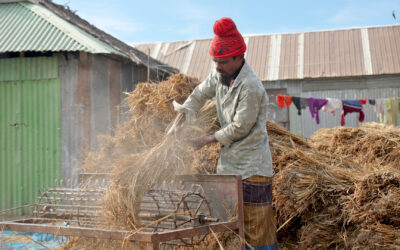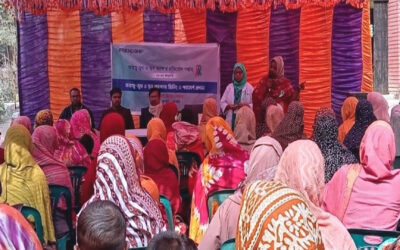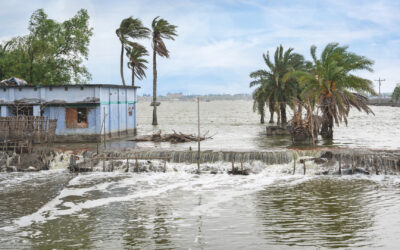Friendship and ADPC hosted a thematic workshop at CBA17 conference in Bangkok
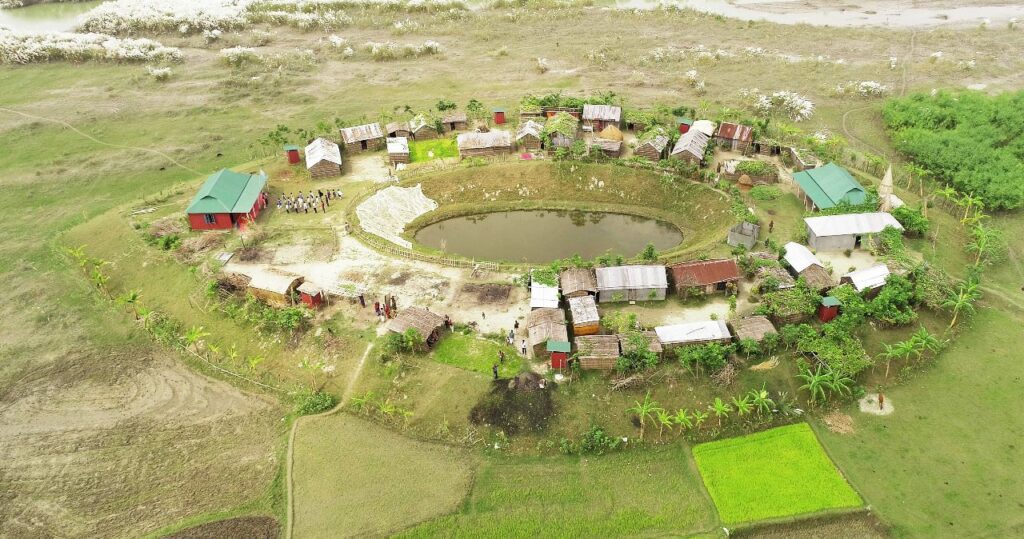
by Raeed Abd-Allah Chowdhury
June 4, 2023
The 17th International Conference on Community-Based Adaptation to Climate Change (CBA17), hosted by the International Institute for Environment and Development (IIED), took place in Bangkok from 22-25 May, 2023. For nearly 20 years, CBA has led the way in sharing the latest innovations for arming local communities to adapt to the climate crisis. It is a unique forum to discuss, debate, and learn how locally-led action can drive a climate-resilient future. CBA17 brought together over 200 practitioners, community representatives, local and national government planners, policymakers, and donors from 55 countries.
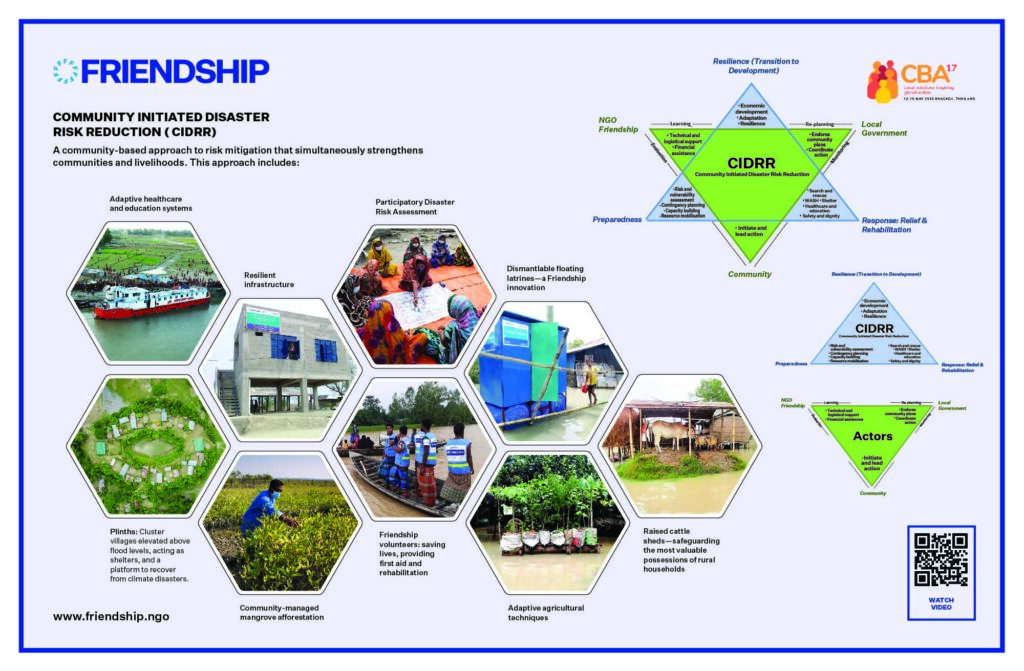
This year was the first in-person conference after 3 years of online editions and Friendship participated again in different ways. Friendship had a stall in the “marketplace”, a room where some of the participating climate-oriented organisations could present their programmes, initiatives, and methodologies. Whether to manage common resources, to prepare for disaster or to increase resilience, local communities are more successful if they are empowered to do so and if cooperation among all stakeholders is real. Within the challenging context of isolated river islands and remote coastal areas, Friendship has developed many participatory, social, and organisational tools to create trust between women, youth, farmers, fishers, poor, relatively wealthy, disabled, local leaders, authorities, etc. around nature-based solutions or disaster risk reduction. In particular, three complementary approaches were showcased in the CBA17 marketplace:
- the Community Initiated Disaster Risk Reduction (CIDRR) approach;
- the mangroves afforestation program;
- the resilience program
A physical space to meet, display and present Friendship’s work was really interesting in terms of networking and exchange on best practices with fellow NGOs working in similar or different contexts.
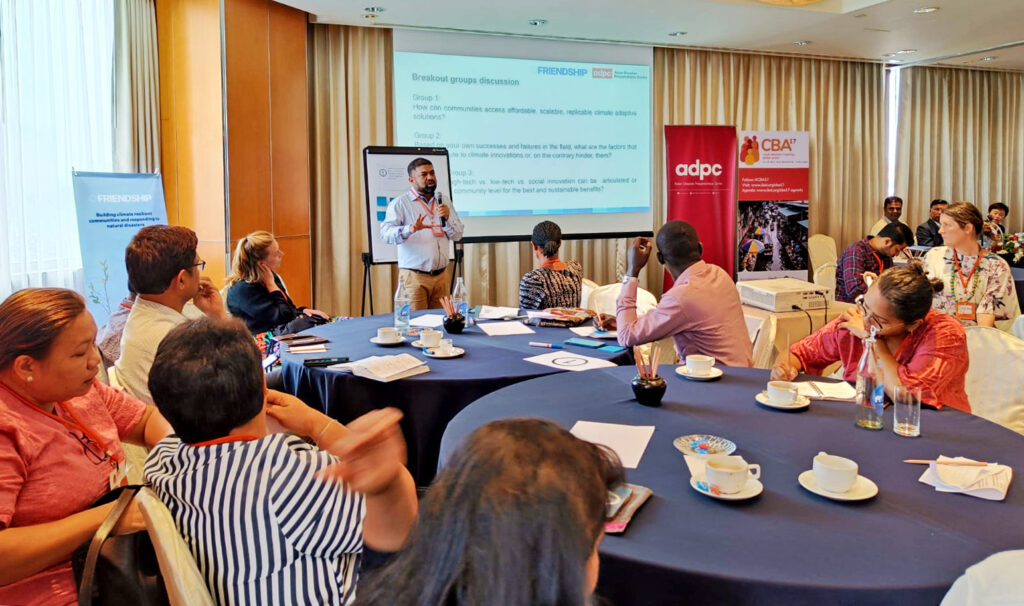
One of the many striking quotes of the CBA17 that applies well to Friendship: “Let’s get over the narrative that women are vulnerable because in many communities and under many circumstances, women are actually leaders (frontline heroes) of climate adaptation,” said Dr. Saleemul Huq, director of ICCCAD.
On day 4 of the conference, Friendship and the Asian Disaster Preparedness Centre (ADPC) hosted a thematic workshop entitled “Innovation to Impact: localising technology”. The objective was to explore, collectively, through stories and experience sharing, the conditions of success of effective innovations in local communities context. The definition of the word “innovation” was on purpose not given as it can come in all forms. Indeed, innovations do not only include digital tools or new technologies but may take various forms to be locally suitable and sustainable. Crucially, the session addressed the question of ‘‘How can innovations be packaged in an affordable, scalable, and replicable manner to deliver accessible solutions and advice to vulnerable groups at the community level?’’
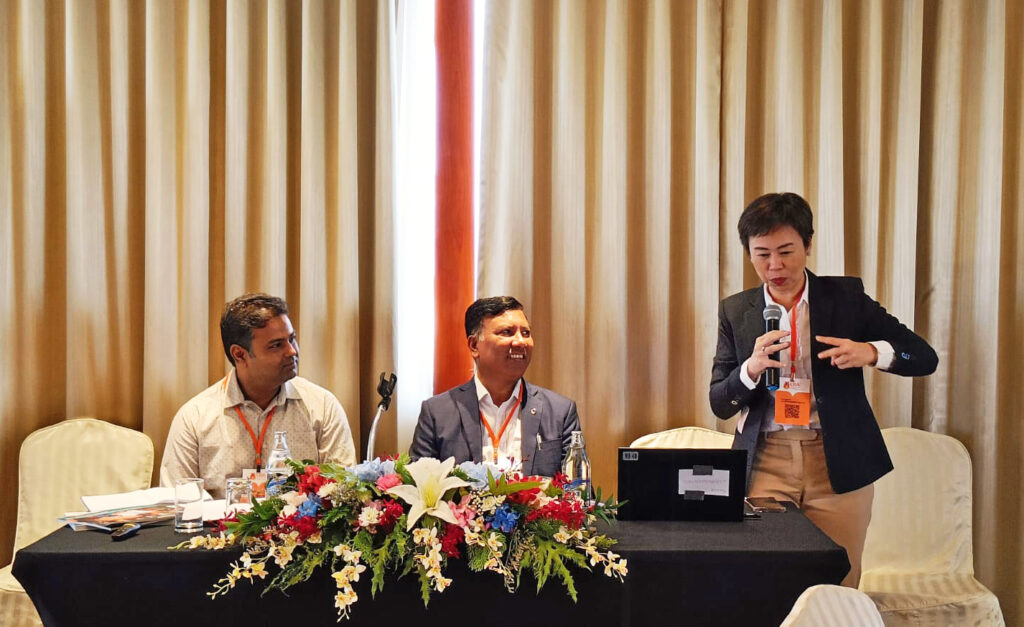
The workshop opened with a keynote address from the deputy governor of Bangkok, Dr. Tavida Kamolvej, a disaster resilience specialist, who talked about how city-planning innovations convey the needs of the citizens of the densely-populated metropolis. This was likened to Friendship’s poverty mapping and CIDRR initiatives, nature-based solutions (plinths, mangroves afforestation, etc.), climate resilient housing, dismantlable schools, floating latrines, solar village, water treatment plant, transitional funding, climate youth empowerment, the ICT-aided mHealth app assisting community medic-aides in the field; and of course the floating hospital, which in 2002 was a truly innovative breakthrough to bring access to healthcare. After these ignite presentations, all the different perspectives and experiences of the participants were discussed and confronted in three 3 breakout groups.
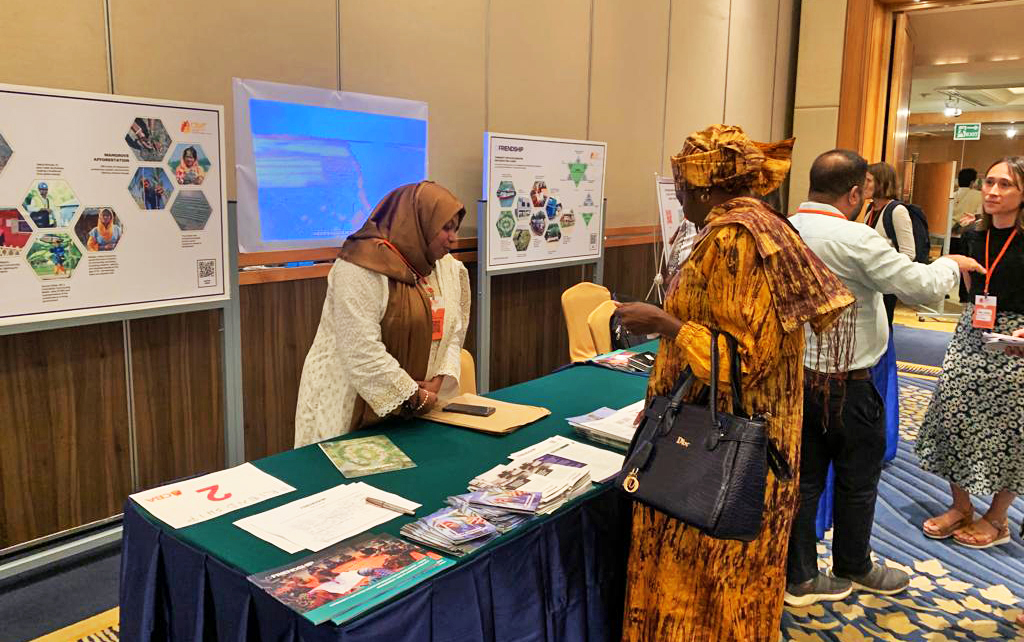
Some of the interesting takeaways from these breakout sessions are, for example,
- Whatever technology you use, be it high-tech digital tools, low-tech or social cooperation, it needs to address the needs of the population and empower them, otherwise, when the supporting organization leaves, it won’t last.
- For effective CBA or LLA, innovation must be human-centered, with a bottom-up approach.
- Capacity building is required to enable proper and sustainable access to innovation for the communities.
- Innovating through new technologies should not create new dependencies at the local level.
As a conclusion, Friendship expressed feeling lucky to be among the selected few organisations appointed to hold a workshop and to share its innovations from Bangladesh. The SPO is thankful to IIED and other partners from the programming group for their trust and support. It means that Friendship is a recognised, experienced, and valuable SPO whose initiatives matter and can inspire others.
This conference, stated a member of the participating team, was a great opportunity to learn from others, either to improve our programs or to have confirmation that we do them right. It was also a remarkable moment of sharing, networking, and making new relations, all of this with the same values, with the purpose of adapting to climate change and serving the most unaddressed communities of the world. It was indeed, he said, mutually beneficial for all involved to have a platform to share expertise and experiences in working towards common, and overlapping goals.
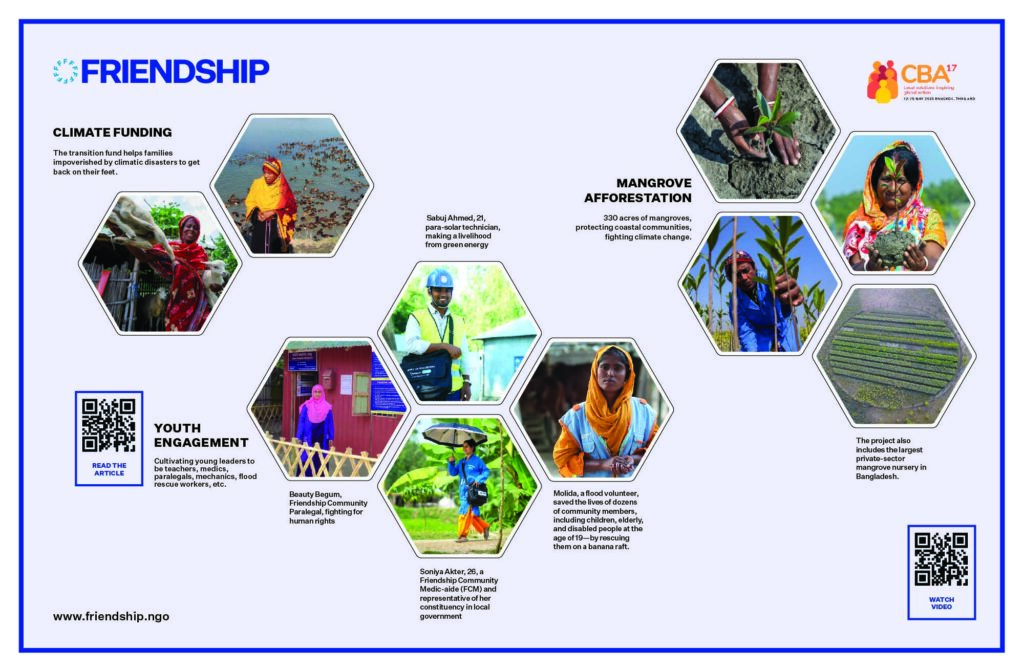
For a deeper look into the CBA17 highlights, please go to https://www.iied.org/cba17-event-highlights


